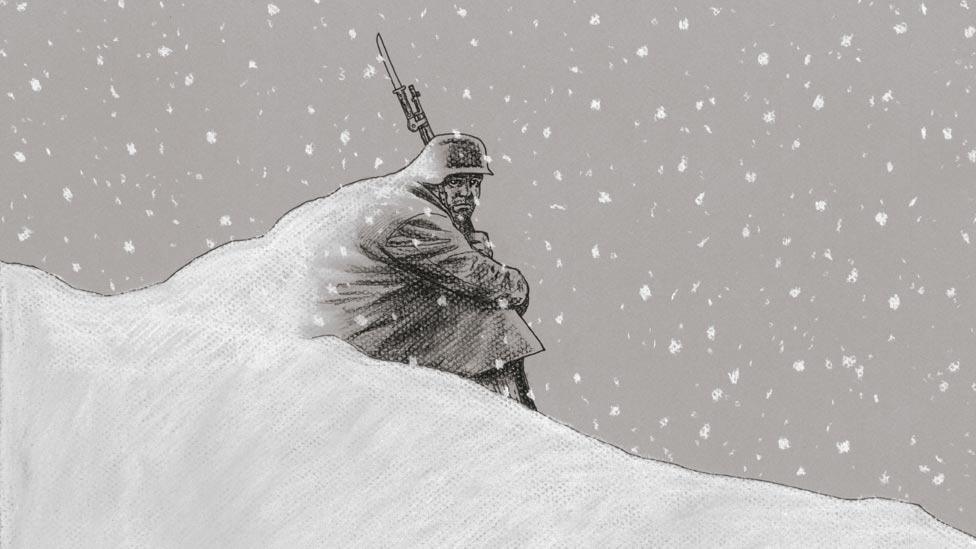Great War was world's first sci-fi war, says Pat Mills
- Published
Charley's War was a comic strip set in World War One that ran for many years in Battle, a British comic published in the 1970s until the late 80s.
Written by Pat Mills and illustrated by the late Joe Colquhoun, it follows young Londoner Charley Bourne's fight to survive in the trenches of the Western Front.
After starting his career with Dundee-based publisher DC Thomson, Mills co-created Battle with fellow comic book writer John Wagner and also launched British science-fiction/fantasy comic 2000AD.
Here Mills gives an insight into writing Charley's War and why he believes how mechanised warfare - machine guns, zeppelins and planes - made WW1 the world's first science-fiction war.
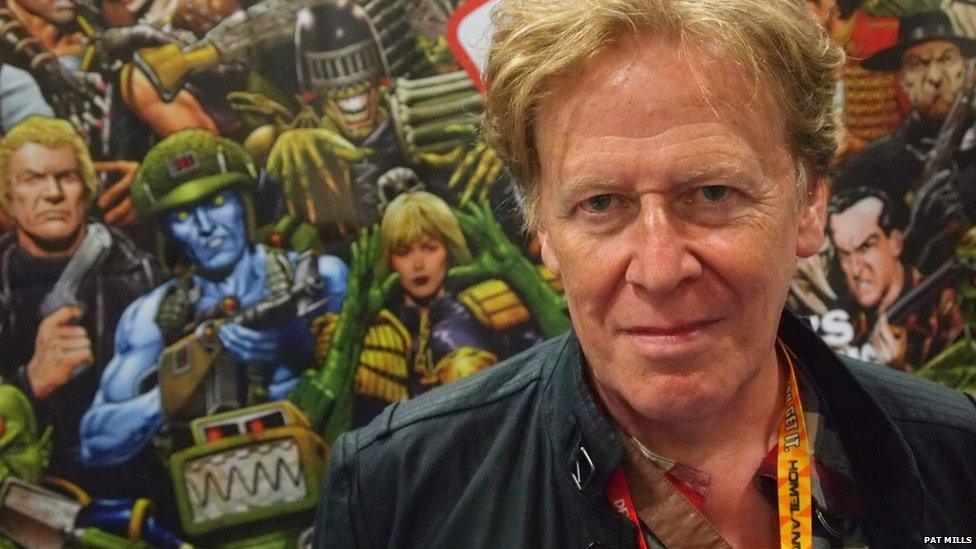
"John Wagner and I did not want Battle to glorify war, and Charley's War is an anti-war story," said Mills. "I think that in the 1970s and 80s it was legitimate, more so than it is today, to describe the Great War as a tragedy, a mistake and criticise the incompetence of generals. In 2014, revisionists have been trying to improve the image of the generals."
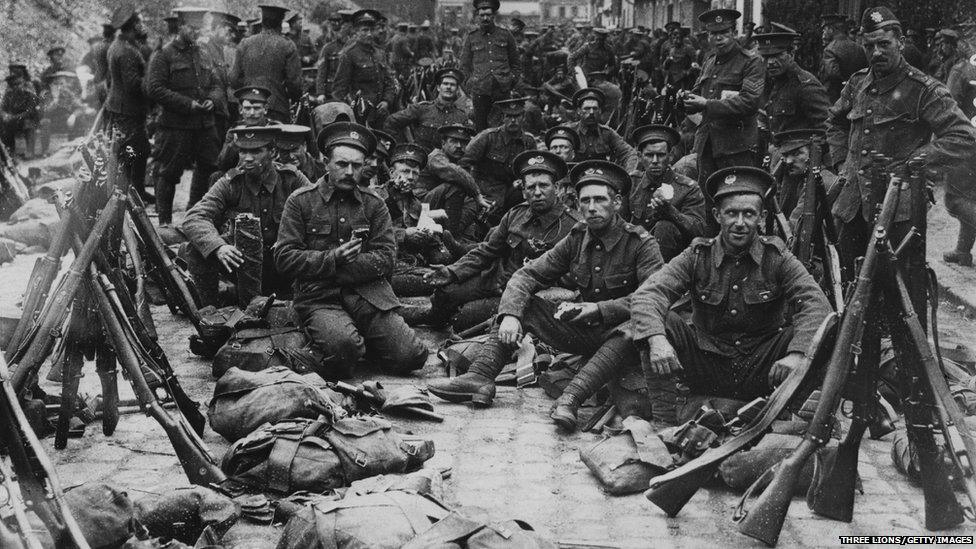
Mills' research drew on books, war-time poetry, soldiers' letters, archive photographs and satirical postcards, and some inspiration from 1969 film Oh! What a Lovely War. War-time letters were a major influence and correspondence between Charley and his mum, a munitions worker back home in Bethnal Green, was used as a plot device in the early strips.
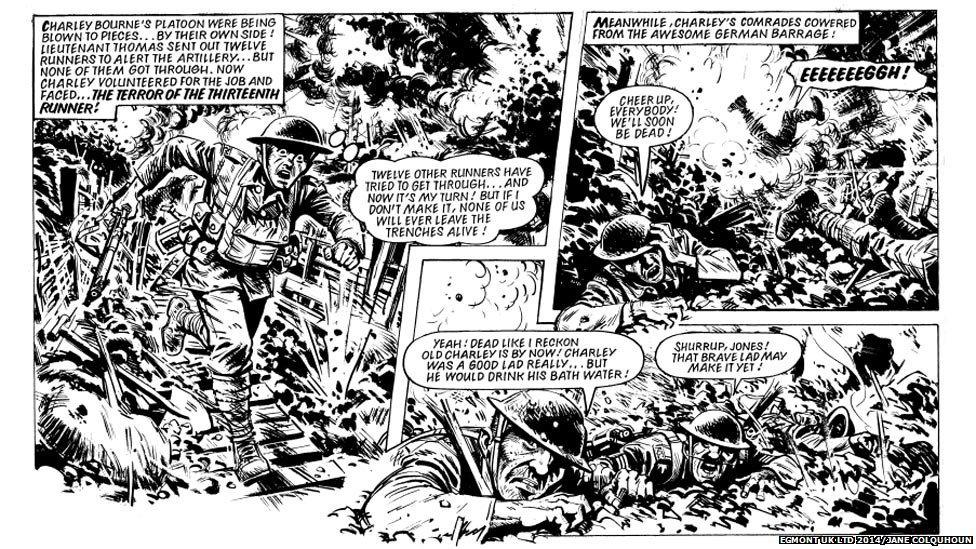
"To write the story I had to understand the complexities of the trenches. It was a learning curve. I owe a lot to Charley's War because it made me a better writer," said Mills.
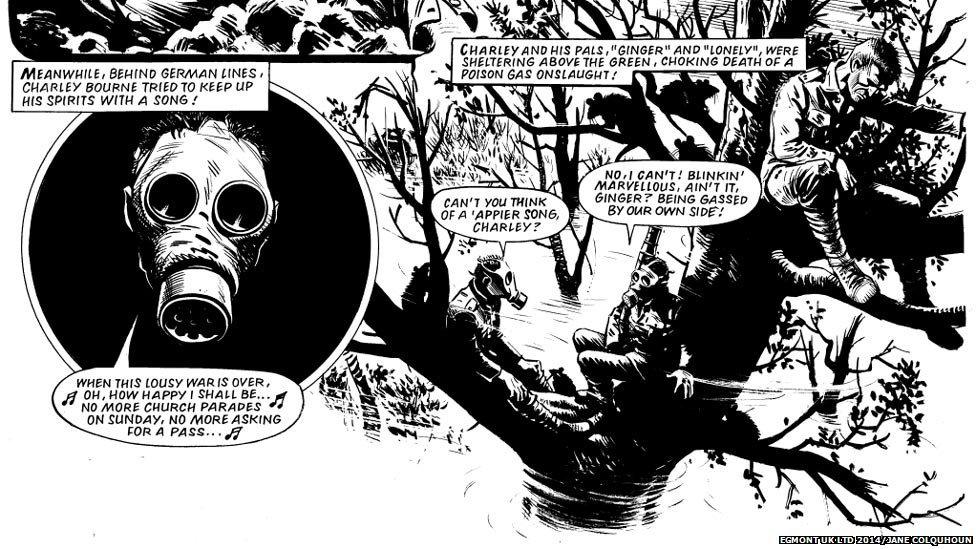
Artist Colquhoun had served as a sailor during World War Two. Before illustrating Charley's War, he had provided the artwork for another Battle comic story, Johnny Red. Set in WW2, its hero is a British pilot fighting for the Russians. Mills said Colquhoun was a hugely talented but modest man. "Joe had this great imagination. Other artists have told of him being able to imagine something, like a tank for example, from different angles. In Johnny Red, he created this amazing street scene of Stalingrad," said Mills.
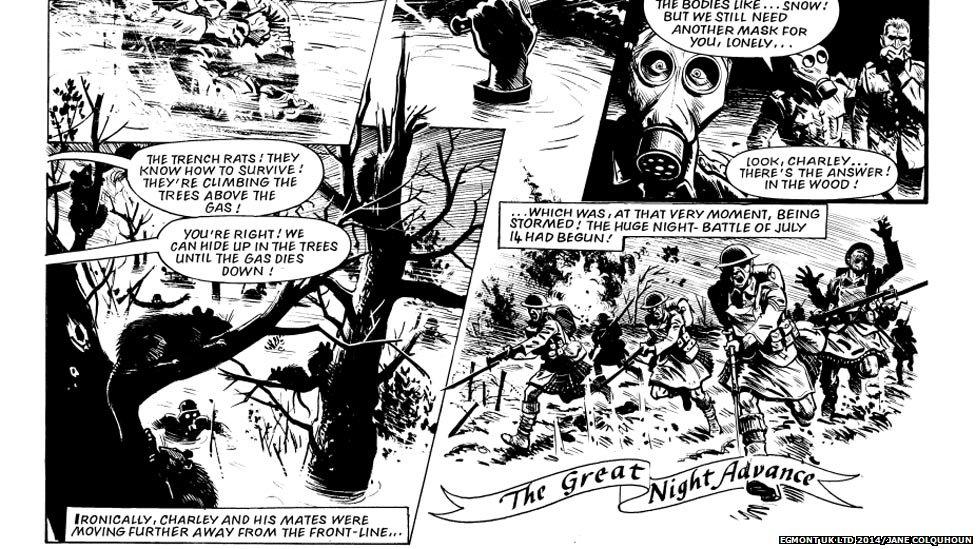
Mills and Colquhoun were determined to root Charley's War in fact. The Battle of the Somme was among the battles featured.
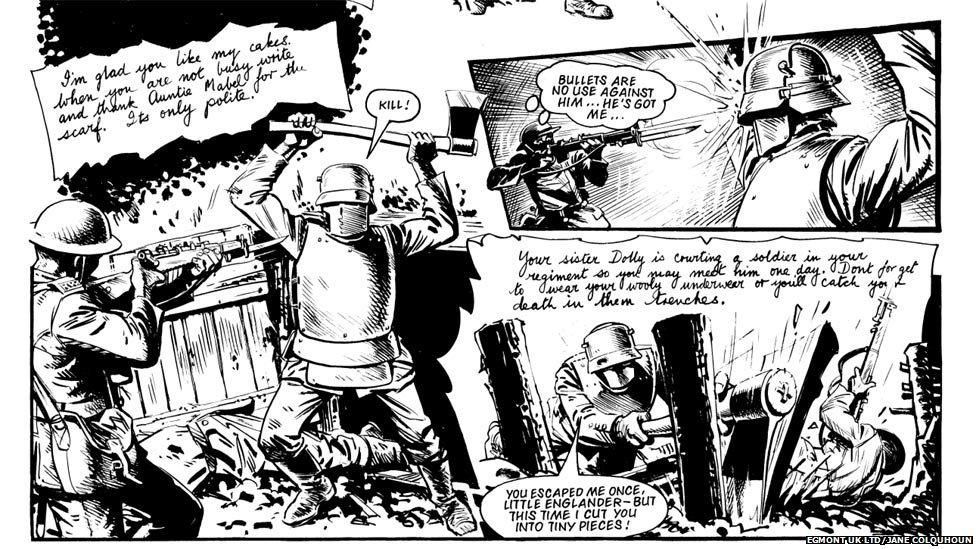
But young Charley's face-off with an armour-clad German sniper proved controversial. Mills said: "Some people did not think this was based in fact. A relative of mine who had served in World War Two also questioned the use of armour. But I had seen a photograph of armour made for use in World War One. It looked medieval."
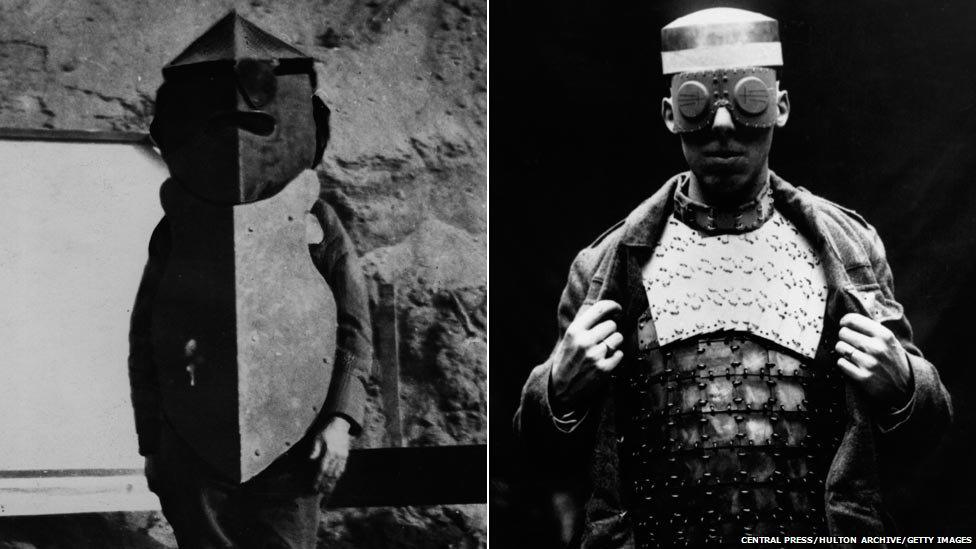
Photographs from Getty Image's archives show US-designed armour, left, and also protection that would not look out of place in the pages of 2000AD.
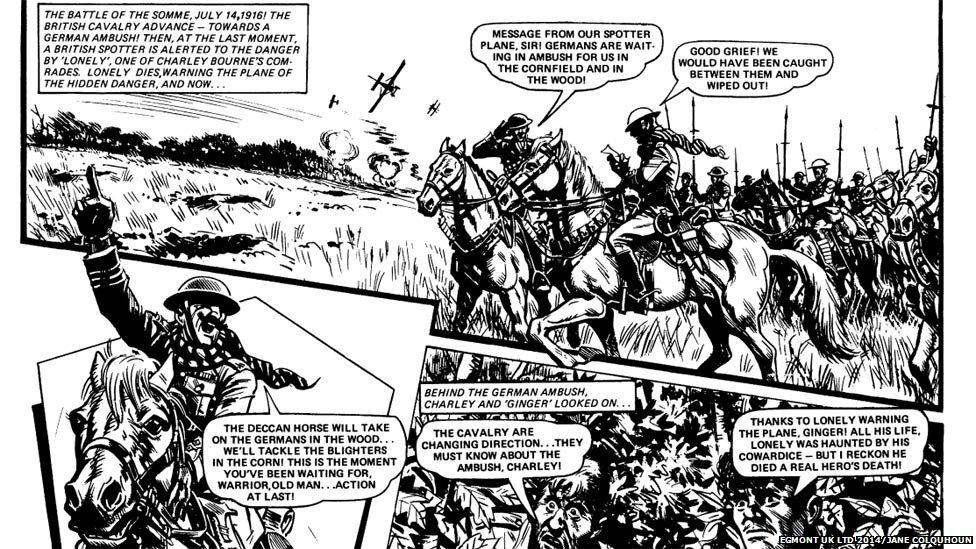
"I didn't want Charley's War to be a story of derring-do and have Charley charging across different theatres of the conflict," said Mills. "But sometimes it was necessary for him to leave the trenches to make a dramatic point, such as showing one of the last cavalry charges of the war. It looks so ludicrous, like something from the Battle of Balaclava, but a charge against machine guns."
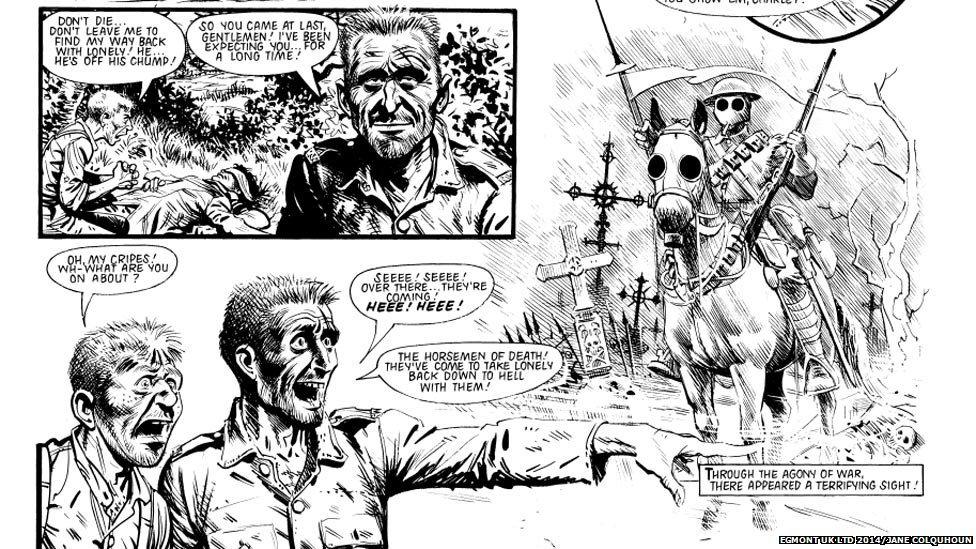
"To me, the First World War was the world's first science-fiction war. It saw the first use of tanks, which terrified some of the Germans in their trenches when they first saw these machines." Mills and Colquhoun also featured Zeppelin airship bombing raids on London, aerial dogfights above the trenches and later heavily armed, armoured trains in the stories.
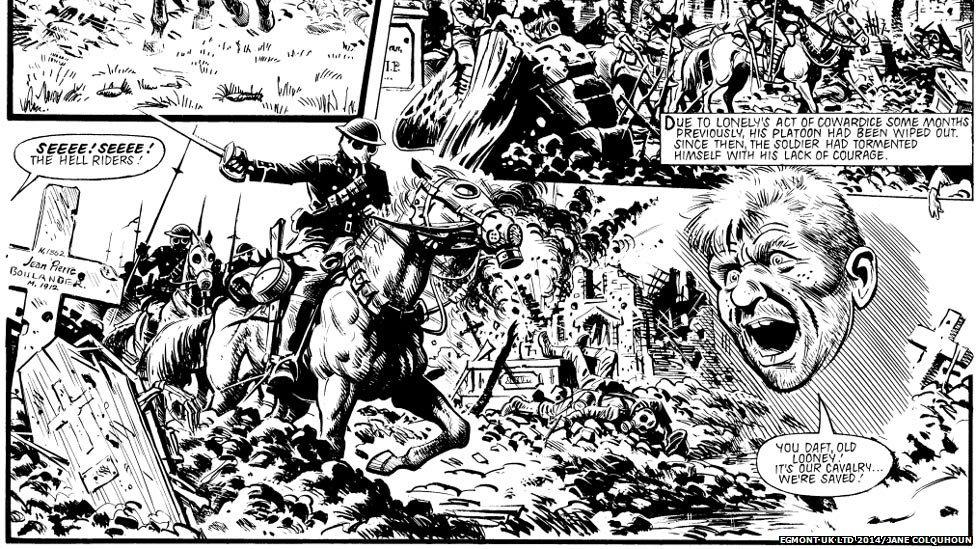
Mills said: "We often imagine that Armageddon is a horror that awaits us sometime in the future. But Armageddon has already happened. It was World War One."
- Published13 May 2014
